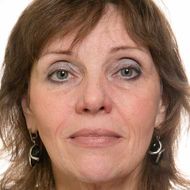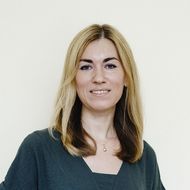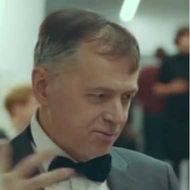- A
- A
- A
- ABC
- ABC
- ABC
- А
- А
- А
- А
- А
- HSE University
- Faculty of Economic Sciences
- Department of Applied Economics
- News
- HSE Enters Top 50 in THE Young University Rankings Under 30 Years Old
-
The Department
109028, Moscow
Pokrovsky blvd. 11,
Room S-527
Phone: (495) 772-95-99 ext.27502, 27503, 27498
In press
Yudkevich Maria, Altbach P. G., Salmi J.
Cambridge: MIT Press, 2023.
Panova A., Matveeva N., Sterligov I.
Journal of the Association for Information Science and Technology. 2025.
In bk.: Vocation, Technology & Education. Vol. 1. Iss. 4. Shenzhen Polytechnic University, 2024.
 Living Standards in the USSR during the Interwar Period
Living Standards in the USSR during the Interwar Period
Economics/EC. WP BRP. Высшая школа экономики, 2023. No. 264.
109028, Moscow
Pokrovsky blvd. 11,
Room S-527
Phone: (495) 772-95-99 ext.27502, 27503, 27498

HSE Enters Top 50 in THE Young University Rankings Under 30 Years Old

In its 25th anniversary year, HSE has marked new achievements, entering the Top 50 in the Times Higher Education (THE) Young University Rankings among universities under 30 years old, and in the Top 100 in the global Young University Rankings under 50. HSE has become the first Russian university to enter the top list of THE Young Universities, a global institutional ranking.
This is the sixth year that the annual Times Higher Education Young University Ranking has been published. The 2017 list includes 200 universities younger than 50 years. This year, the authors of the ranking also analyzed smaller groups of universities, Generation X, Generation Y and Millennials. HSE entered the Top 50 among Generation Y universities, which were founded between 1986 and 1999, and the Top 100 (96th) in the general THE Young Universities rankings. HSE also entered the QS 2016 Top 100 young universities ranking (51-60 cohort), the only Russian university to have done so.
The THE Young Universities Ranking is a projection of the general THE institutional ranking on the group of young universities, and includes the same performance indicators, recalibrated in terms of their impact factor. Traditionally, reputation accounts for 33% in the THE University Rankings, but since a young university needs more time for public and academic acknowledgment, this indicator has a lower impact in the young university ranking (22%). According to the authors, this ranking includes young, dynamic institutions, that is tomorrow’s champions that challenge today’s elite global institutions.
‘Being part of this ranking is a confirmation of the success achieved by the entire HSE team, which is celebrating its 25th anniversary this year. It took HSE only 25 years to grow from a small institution founded by a team of enthusiasts to an internationally recognized university that is renowned publically and academically not only in Russia, but also abroad. HSE focuses its effort on publication activities, improving academic processes, and increasing internationalization, which has allowed the university to rank highly among dynamic developing universities,’ commented Evgeny Yasin, HSE Academic Supervisor.
Phil Baty, editor of the Times Higher Education rankings, commented on HSE’s success:
‘It is great news that the Higher School of Economics is listed in our 2017 Young University Rankings – the first time a Russian institution has featured in the six-year history of the ranking.
The university is particularly strong among its young peers at providing strong teaching and research environments and working closely with industry, achieving high scores in the teaching, research and industry income pillars of the ranking.’
Nearly 32,000 undergraduate and postgraduate students in Moscow, St. Petersburg, Nizhny Novgorod, and Perm currently study at HSE. The university features 216 graduate programmes, 41 double-degree programmes implemented in partnerships with international universities, 32 international laboratories headed by leading international scholars, 31 research institutes, and 57 joint departments with international and Russian research and commercial organizations.
- About
- About
- Key Figures & Facts
- Sustainability at HSE University
- Faculties & Departments
- International Partnerships
- Faculty & Staff
- HSE Buildings
- Public Enquiries
- Studies
- Admissions
- Programme Catalogue
- Undergraduate
- Graduate
- Exchange Programmes
- Summer Schools
- Semester in Moscow
- Business Internship
-
https://elearning.hse.ru/en/mooc/
Massive Open Online Courses
-
https://www.hse.ru/en/visual/
HSE Site for the Visually Impaired
-
http://5top100.com/
Russian Academic Excellence Project 5-100
- © HSE University 1993–2025 Contacts Copyright Privacy Policy Site Map
- Edit


